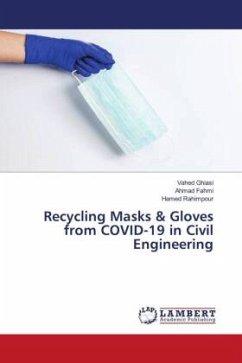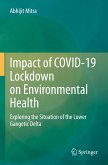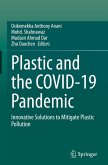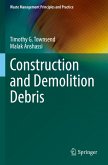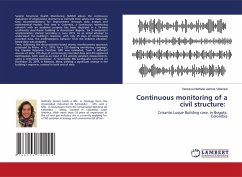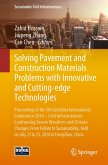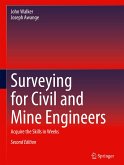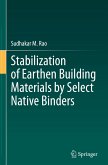Following the COVID-19 virus outbreak and the resulting pandemic, personal protective equipment such as rubber masks and gloves (which contain plastic and rubber) has increased considerably. Because of the widespread use of rubber masks and gloves, inadequate waste disposal has resulted in an increase in plastic and rubber pollution worldwide. Prior to the COVID-19 pandemic, plastic contamination was also affecting the environment. Despite the limited successes in plastics management before the Corona crisis, the need for serious plastics management is becoming increasingly important in the post-COVID-19 period. In this research, in the construction sector, during the COVID-19 pandemic, various studies were carried out on the use of plastic waste and this waste as aggregates and fibers to increase the mechanical strength of concrete, asphalt, soil reinforcement, etc. This research highlights the need to pursue research and scientific action on the use of mask and glove waste produced during the COVID-19 pandemic in construction. This research shows how masks and gloves after use, can be used as materials to stabilize geomaterial and buildings, not only as environmental waste.
Bitte wählen Sie Ihr Anliegen aus.
Rechnungen
Retourenschein anfordern
Bestellstatus
Storno

